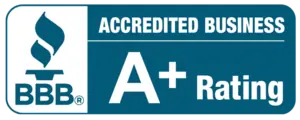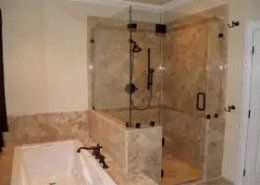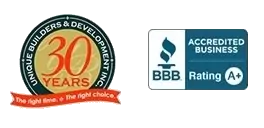What Is the Effect of Oven Cleaner on Kitchen Countertops
Tags
Best Countertop Cleaner| Kitchen Counter Cleaners | Types of Cleaners for Countertops
Kitchen countertops are not just functional surfaces; they are often a focal point of your kitchen’s design and aesthetics. From granite to marble, from quartz to laminate, kitchen countertops come in various materials, each with its unique properties and care requirements.
While regular cleaning and maintenance are essential, many homeowners wonder about the effect of oven cleaner on these surfaces.
In this comprehensive guide, we will delve into the world of kitchens and explore the impact of oven cleaners on countertops.
The Impact of Oven Cleaner
Oven cleaners are designed to break down tough, baked-on grease and grime in your oven.
They typically contain strong chemicals, including lye or sodium hydroxide, to aid in the cleaning process. However, the chemical composition of oven cleaners can be harsh on certain countertop materials.
- The porous nature of granite makes it vulnerable to the chemicals in oven cleaners. Prolonged exposure can result in dullness, etching, or discoloration of the stone. It is crucial to avoid using oven cleaner on granite countertops.
- Just like granite, marble is sensitive to acidic and abrasive substances. Oven cleaners can lead to etching and staining of marble countertops. Hence, they should not be used on these surfaces.
- Engineered quartz is generally more resistant to chemicals than natural stone. While it can withstand brief exposure to oven cleaner, it is still advisable to avoid using it to maintain the surface’s pristine appearance.
- Laminate countertops can fare better against oven cleaners, but it’s essential to use them with caution. Prolonged exposure might still damage the surface, so it’s best to opt for milder cleaning solutions.
- Solid surface countertops are relatively more resilient to chemical exposure. Oven cleaners are unlikely to cause significant damage, but it’s still wise to limit their use when milder alternatives suffice.
Also Read: Granite Countertops Installers Near Me
Safe Cleaning Alternatives
To maintain the integrity and longevity of your kitchen countertops, it is essential to use safe cleaning alternatives. Here are some tips for effectively cleaning your countertops without resorting to harsh chemicals:
-
Warm Soapy Water
Mix a few drops of dishwashing soap in warm water to create a gentle cleaning solution for most countertop materials. Wipe the surface with a soft cloth or sponge, rinse, and dry.
-
Baking Soda and Water
For stubborn stains and grime, make a paste of baking soda and water. Gently scrub the affected area with a sponge or cloth, then rinse and dry.
-
White Vinegar
White vinegar is a natural and safe cleaner for many surfaces. Dilute it with water, and it can effectively remove mineral deposits and stains on countertops. Rinse well afterward.
-
Commercial Stone Cleaners
If you have natural stone countertops like granite or marble, invest in a specialized stone cleaner designed to protect the surface.
The effect of oven cleaner on kitchen countertops varies depending on the material. While some surfaces may withstand brief exposure, others can be irreparably damaged.
Choose the Right Cleaning Methods
It is essential to choose the right cleaning methods and products to preserve the beauty and functionality of your countertops.
- Always consult your countertop manufacturer’s care guidelines and exercise caution when using harsh chemicals, like oven cleaner, in your kitchen.
- Prioritizing the care and maintenance of your kitchen countertops will ensure they remain a source of pride and beauty in your home.
What Do Oven Cleaners Contain?
| Component | Description |
| Solvent | Often a powerful chemical solvent like sodium hydroxide or potassium hydroxide is used to break down grease and grime. |
| Surfactants | These help in emulsifying and lifting away dirt and grease from the oven surface. |
| Abrasives | Some oven cleaners may contain abrasive materials like fine powders or scrubbing agents to help remove stubborn residues. |
| Fragrance | To mask the strong chemical odor, fragrances are added for a more pleasant smell. |
| Thickeners | These are used to give the cleaner a gel-like or viscous consistency, making it easier to apply and adhere to vertical surfaces. |
| Colorants | Often, dyes or colorants are added to give the cleaner a distinctive color, which can help with product recognition and usage. |
| Inhibitors | Corrosion inhibitors are sometimes added to protect the oven’s metal surfaces from damage. |
| Water | Water is used as a diluent to adjust the concentration and viscosity of the cleaner. |
Conclusion
If you’re considering changing your countertop or planning a remodeling project in the Houston area, you might want to explore various options to find the best solutions for your needs.
Unique Builders & Remodeling Houston is a reputable remodeling and construction company that could assist you in achieving your countertop renovation goals.






















